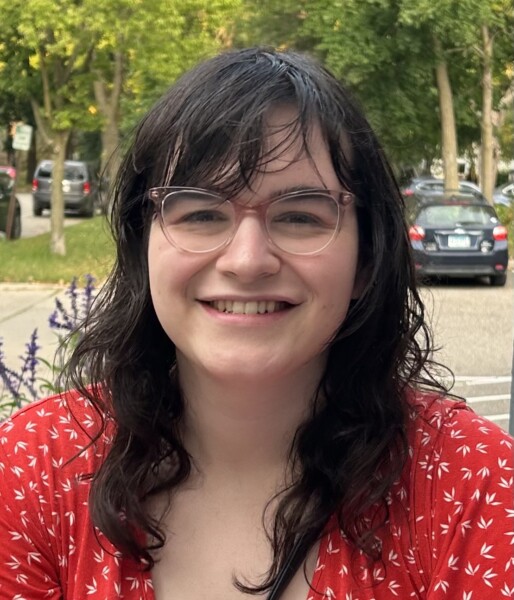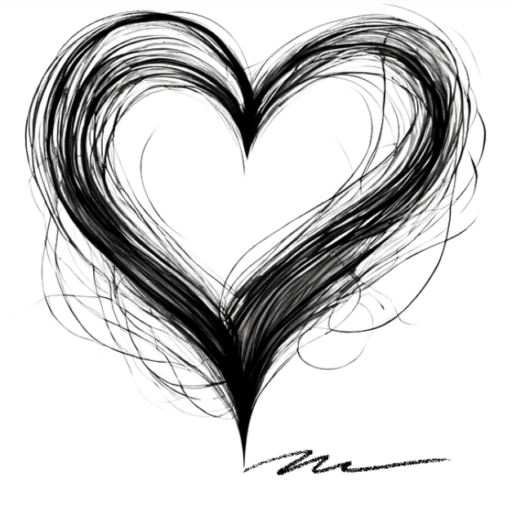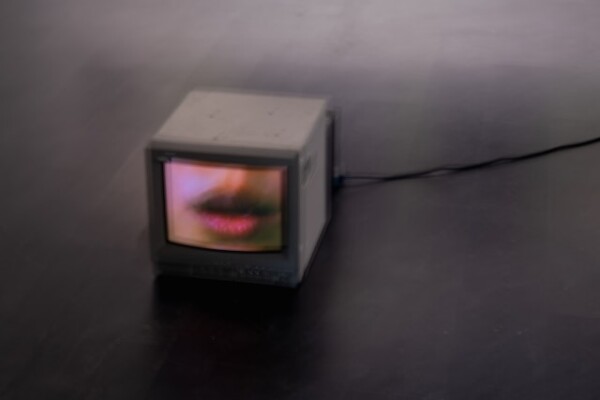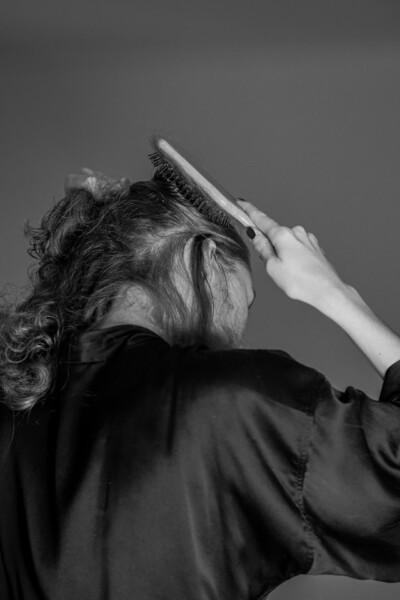The Scar
The day I learned that I thought about women differently, Nora Hannon scurried into math class, her face buried in her binder. Nora was a shy but brilliant brunette who dressed largely in polos and tennis skirts. As the lesson began, she shifted toward the board and I saw what she’d been hiding. A dark pink and shiny abrasion followed down one side of her forehead, over her nose, clipping across the opposite eye, and tapering down her cheek.
I looked away before she could notice. I didn’t mean to stare. Other kids were looking too. I didn’t like having joined a wave of attention that likely made the quiet Nora uncomfortable. I did my best to not do it again and forgive myself for the indiscretion. After all, I knew the reason we were all looking, and who could blame us? She was the coolest-looking person any of us had ever seen.
She’d fallen off her bike that Saturday, catching herself with her hands, but I guess also a little bit with her face. She answered one or two people after class, and then begged everyone to stop asking. I hoped she recovered. And she did, with no scar to speak of in three months’ time.
But meanwhile, I thought, of all the ways to be cut on the face, I considered her quite fortunate. For one, it looked healthy and already healing. The placement was also fantastic. She looked like a fantasy protagonist. She had the kind of scar you could add in a video game character creator. I could see she was self-conscious, and I didn’t blame her; people can get self-conscious about anything. But I was so sure she needn’t have been. It was an accident, probably painful, but it gave her the temporary visage of a warrior princess.
I started getting strange flashes of feeling around Nora. I’d see her in the hallway, feel the warmth pool in my cheeks, and adjust my hair, like she would care what shape my hair was in. She made a muted half-joke about a surprise quiz and I laughed, involuntarily, loud enough to gain everyone’s attention. I had to play it off like something I had read was funny. When she was around, I couldn’t stop looking, and I imagined her face until I saw her again. I couldn’t act normal around her. She was so cool. The combination of her elegant composure and badass scar did something to my brain. She looked rad as hell.
“Ugly as hell,” said one boy a few days later.
“Her face is ruined now,” another boy agreed.
It didn’t even occur to me they were talking about Nora until one of them said her name. I thought I misheard, but the other one said it back.
“Excuse me,” I found myself saying to the pair. They looked up at me from their seats in expectation. “I’m sorry, I’m so curious, I have to ask, are the two of you…fucking blind? It’s just, that’s pretty mean to say about anybody, but also…have you seen her?”
They looked at me confused. “She has a giant scab on her face.”
“Yeah,” I agreed, “in the shape of a comet. Like, I’m sorry she fell off her bike, but if anything, she looks hotter now.”
“Gay,” one of them said before they both got up and left, ending the conversation.
I stood there confused. Not pretty anymore? Just because she’s got a cool scar? She was still adorable: bright-cheeked, deep-eyed, well-groomed, just with one—temporary—edgy adornment. What was wrong with them?
Maybe I was gay. When one girl drives another to blush and fawn and preen in her presence, if that girl’s head is filled with the thought of the former, when the new gamut of her fantasies ranges from slight brushes between shoulders to a tender kiss to being her bride, it would certainly follow sense to assume that girl to be gay. That would have made sense to me.
The problem was that that conversation happened after gym, in the boys’ locker room. I was in there because I was, ostensibly, a boy.
The History Channel, when I was twelve, was already largely devoid of history. After the hour of WWII programming, dedicated to determining whether Hitler was vegetarian—he wasn’t—they gave up pretending. I watched MonsterQuest, which is what it sounds like, Wednesday evenings from seven to eight EST. I sat with my homework as wild-haired researchers looked in vain for Bigfoot, or Champ, the Loch Ness-style monster of Lake Champlain. One night, I landed on the couch with early control of the television, my mother and sister having gone out. I turned to the History channel and for the first time saw the show that came before Ancient Aliens. I caught the end of an interview with an evolutionary psychologist discussing attraction.
He said he had traced the secret to human nature back to more simplistic animal instincts. “Women,” he said, and he didn’t say straight women, as no one ever did, “are attracted sexually to men who bear traits which would have been advantageous in the hunter-gatherer societies that defined human community during most of our development as a species.” Okay.
“For instance,” he narrated over clinical photographs of disinterested people, “women are drawn to men with prominent scars, especially on the face, as they indicate a level of survival skill that is helpful in the male of a pair.” I didn’t like the use of the word “male” as a noun. “But this encourages short-term pairing, and in contrast, other traits, such as resource accumulation, or wealth, attracts females and draws them into long-term partnerships, as they search for safe environments in which to birth and raise offspring.” I didn’t love “females” as a noun either.
“These things are not as important for men in their mates, being the partner who handles fighting and the providing. So strong, birthing hips become more important than wealth, and facial scars on women are a deterrent, because it implies a history of physical damage that may have affected reproduction.”
I paused the TV, my head over-warm. What he said sounded stupid, over-simplistic, and, for reasons I didn’t have the vocabulary to describe, gross. Humans are animals, true, but even if we possess these instincts, we also speak languages, read, and watch television. All those must shape how we feel more than some hind-brained predisposition for or against a scar. Even if this were true, I thought, it would describe only a part of our underlying impulses. But he was an expert, with research, or so he said. Was he right? Is that how it was, at least, for “normal” people?
A voice in the back of my head noted, if this is the nature of human programming, isn’t yours broken? I found myself attracted to women, but not to the reproduction-forward traits or the bland faces of this scientist’s “ideal females.” In one case my taste lay in plain opposition to his hypothesis of male sexual interest: I thought Nora looked better with her scar. I felt queer, in the original sense, in that I was strange, taxonomically unaccounted for, aberrant.
I had on hand one theoretical alternative model of attraction: homosexuality. There is a second type of man, the kind who desires men, and displays his interest like women do: fawning, preening, admiring. When I saw Nora after her accident, I remembered feeling flushed, embarrassed, drawn to her. I liked that a feminine and elegant figure had implied survival skill. It wasn’t like she was butch—the girl wore mary janes to school of her own volition—but she was better when she didn’t fit the ideal this man painted in strokes broader than a barn.
I liked her. I knew that, as “the man,” I should approach her, muscle my way into her life, assert myself. Kiss her. But I wanted her to kiss me. The idea of a girl asserting herself intoxicated me. Wouldn’t it be so flattering, so dreamy if a girl wanted me and then did something about it?
I had never kissed a girl. I began to wonder, in such a circumstance, if I’d sigh involuntarily, or pop one of my feet off the ground behind me. Why was I so afraid, and so sure, something like that might happen? And if it did, what then? Would someone see and point it out? Would she laugh? Would I never get a second kiss? I’d pictured relationships with girls, but I hadn’t ever pictured myself in those relationships. In my daydreams of intimacy, women caressed a dotted silhouette, featureless and only clearly me through context. The thesis of my desire was: this girl would be fun to kiss. Insert theoretical girl-kisser here.
It was no fun thinking about a guy, and I seemed to be one. It occurred to me that, in a real relationship, you probably have to actually be there, as yourself. That would be so much easier, I thought, if I was prettier. In my fantasies of this new, battle-hardened Nora, I acquired an air of femininity: a litheness I did not possess, clothing I could never have worn.
I thought I had hallucinated the beauty of androgyny as a young child. Then I saw a sliver of it, in a small crack in the face of a girl. I was sure I could never be pretty, but handsome girls were real, not a cryptid that men in raincoats fail to find for an hour on MonsterQuest. It was stupid, what the man said. But it had catalyzed something ancient within me and that didn’t go away even as I concluded evolutionary psychology to be bunk. I turned the TV off and sat on the couch in silence, stumped by a problem with no clear solution. I was, by all accounts, a twelve-year-old boy. But I was gay for Nora Hannon.

Agatha Eydenberg is a writer, musician, and woman of boy scouts experience based in the Twin Cities area of Minnesota. She lives by a river with her wife. You can find her at @asmallbirdmusic on Instagram.



